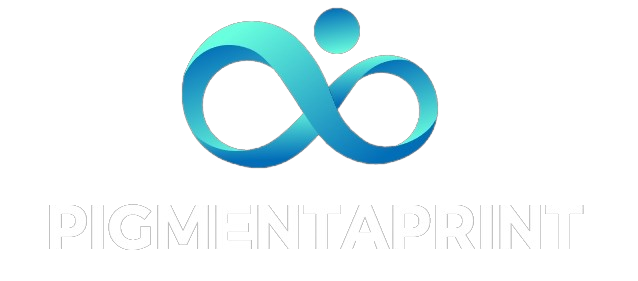If you’re a business owner, you know the importance of finding the perfect building to house your operations. Whether you’re looking to expand your current office space, buy a retail location, or finance any other type of commercial property, you’ll need to consider all the financing options available. Read on to learn more about the different commercial real estate financing options you can choose from to power your business.
1. Exploring the Financing Possibilities of Commercial Real Estate
As an investor, entering the world of commercial real estate can be daunting. Thankfully, there is no shortage of financing options available for those looking to increase their portfolios with income-producing properties. In this section, we’ll examine some of the main financing strategies for commercial real estate.
Equity Financing
- Can usually involve partners
- Shared risk and often multiple sources of capital
- Open to investors, family members, silent partners or pension funds
Equity financing involves raising money for a real estate venture from a group of individuals or institutions, with each party offering up their own capital as a form of stake. While this kind of financing is often used for residential investments, it can be utilized for commercial properties too. Depending on the assets, it may provide a more reliable source of capital as there may be multiple sources. However, there is a greater risk associated with this approach, as all parties involved will share the burden of any debt.
Mortgage Financing
- Can include multiple loans
- Flexible terms and payment options
- Requires higher credit score than residential loans
Mortgage financing is likely the most common method for acquiring commercial real estate, particularly for large projects. Loans are offered by banks and other lending institutions, and because of the size and scope of the investment, multiple loans are usually required. This can be a great option for investors who don’t have access to the necessary funds, as it can provide some flexibility in terms and payment options. It’s important to note, however, that commercial loans typically require a higher credit score than residential ones.
2. Taking a Look at the Benefits of Commercial Real Estate Financing
Fast Financing: Commercial real estate financing offers business owners and investors access to short-term and long-term financing solutions on favorable terms. There are a variety of financiers who can provide flexible financing options tailored to the specific needs of businesses. This can help the borrower obtain the necessary funds quickly and easily, as well as provide the opportunity for negotiation and customization.
Asset-Backed Security: One of the greatest advantages of commercial real estate financing is the ability to use the financed property itself as collateral. This provides lenders with greater confidence when granting the loan, allowing them to provide more favorable terms and lower interest rates. It also gives borrowers added flexibility in financing, using the property as an asset-backed security against which to borrow against.
Tax Advantages: There are a variety of tax benefits associated with owning commercial property. These range from the ability to depreciate the value of the property, as well as a variety of deductions available for maintenance and other expenses. Investing in commercial real estate is often more tax-advantageous than other investments, which can add to the value of a commercial real estate loan.
< strong>Available Funds: With commercial real estate financing, businesses can access larger amounts of funds when compared to other forms of financing. This can be invaluable for businesses that require additional capital for expansion and growth. Access to greater amounts of funds can also help with cash flow, allowing businesses to take on larger projects with no additional financial strain.
3. Deciphering Different Financing Options
With so many financing options to choose from, it can be difficult to decipher which financing option is best for you. It’s important to consider your current financial situation when evaluating which option might be right for you. Here are some essential tips to help you select the best financing option for you.
- Understand Your Financial Situation: Start by assessing your current financial situation to determine how much money you can comfortably afford each month. This will help you determine your budget and narrow down financing options.
- Shop Around: Once you know the ballpark price range you can afford, take some time to shop around at different dealerships and lenders to compare interest rates and other terms and conditions.
Leasing may be one financing option worth considering if you don’t have enough money saved up for a large down payment. With a lease, you don’t own the car; instead, you’re paying to use the car over a period of time. You will have to return the car at the lease’s end, but you can upgrade to a newer model if desired.
In contrast, buying may be more beneficial if you plan to keep the car for a long time. When you buy a car, you own it and can do with it whatever you want – trade it in, upgrade it, downgrade it, or keep it for a long time. The downside of buying is that you’ll need to save up for a large down payment.
Ultimately, the financing option you choose will depend on your financial situation and needs. It’s important to take the time to research your options so that you can make an informed decision and select the best financing option for you.
4. Making the Best Financing Decision for Your Business
No matter the size or age of your business, financing options are always available and it pays to spend the time researching the right one. is about understanding the advantages and disadvantages of different products, and then weighing them against your current financial situation.
When looking to finance your business, some of the things to consider are:
- Forex exchange rate risk: In times of volatile markets, it pays to understand the forex exchange rate risk associated with different nationality products.
- Interest rates: Different products have different levels of interest, so it pays to compare different products before you make your final decision.
- Ease of access: Will it be easy to access the capital you need when you need it, and if not, what are the associated costs?
- Repayment terms: Consider any special offers that may be available in terms of repayments, such as lower interest rates or free repayment periods.
- Collateral requirements: Are there collateral requirements attached to the products you are considering and if so, do you have the required assets?
When it comes to , it’s important to do your research and look at a range of factors. Make sure you understand the different products available, their benefits and drawbacks, and that you have considered them in the context of your own financial situation.
By doing your due diligence, you’ll be in a better position to make an informed decision about the right financing solution for your business.
No matter your financial goals, it’s important to explore all your commercial real estate financing options. From traditional to alternative solutions, there is sure to be something that works for the unique needs of every business and its property. Now is the time to make a move on the perfect financing solution for your commercial real estate venture!



